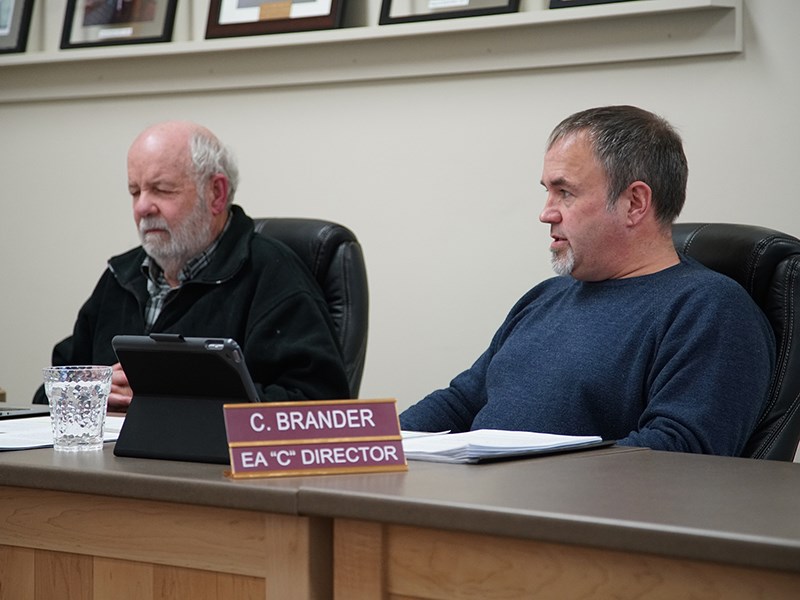qathet Regional District’s committee of the whole is recommending the regional board not forward a stakeholder response letter regarding old-growth strategic review to the provincial government.
At the Thursday, January 16, committee of the whole meeting, directors discussed the matter, which had been postponed from the November 28, 2019, regional board meeting. The regional district had been invited to participate in BC’s old growth strategic review, where an independent panel had been appointed to engage with first nations, industry, stakeholders and communities to hear perspectives on the ecological, economic, social and cultural importance of old-growth forests. The panel is expected to inform a new approach to old-growth management for BC.
A letter had been drafted for the November 28 meeting. Directors had directed a rewrite of the letter to the ministry of forests, lands, natural resource operations and rural development.
City director CaroleAnn Leishman told the committee she was not in favour of submitting the revised letter as it stands. She said she was happier with the original letter. She said she would be more in favour of submitting the original letter and suggest that individual directors can submit their own feedback.
Chair Patrick Brabazon said he, too, had difficulties with the letter.
“I had difficulties in November and I have difficulties with this one, too,” he added. “This is a highly political issue and the draft before us is a highly political document. It’s probably unfair for the board to expect any staff member to write such a letter on this topic because it is so controversial.
“I’m not in favour of sending the November letter, nor am I in favour of sending this letter. I would prefer to send no letter at all.”
The motion to send the most recent draft was not moved and seconded.
Brabazon said there was another choice. Area C director Clay Brander had written a letter and circulated a draft to board members. Brabazon said he would be willing to support sending Brander’s letter and made a motion to send Brander’s draft.
Area E director Andrew Fall suggested an amendment to Brander’s letter that there needs to be better public education regarding the term old-growth, based on current objective scientific understanding. Brabazon seconded the amendment and said Fall was right because there is great confusion over what an old-growth tree is in age. He said the provincial standard is 250 years, but at the Association of Vancouver Island and Coastal Communities convention last year, City of Victoria and other urban representatives spoke in terms of 100 to 150 years.
The amendment carried.
City director George Doubt said he had a problem with the process. He said Leishman’s first suggestion was, rather than send a poorly considered letter, that no letter be sent. The motion to send the second letter did not get moved and seconded. He said there was now a motion to send Brander’s letter, circulated to board members by email just prior to the meeting. He said he hadn’t had time to fully consider the contents of that letter.
“I hesitate to put up my hand to say I’d really like to send that letter because I don’t think we’ve carefully considered it,” added Doubt.
Chief administrative officer Al Radke said he strongly encouraged directors to submit letters individually.
Brabazon said Radke’s suggestion was one of the options he had in his mind, that individuals could send their own letter.
Brander said he put a lot of work into his letter but he also understands that this document is difficult. He said he commends the staff member who wrote the board’s letter because it’s a very challenging topic.
“At the end of the day I was going to suggest we have no letter from the board and have individual ones,” said Brander.
Committee of the whole voted against sending Brander’s letter.



